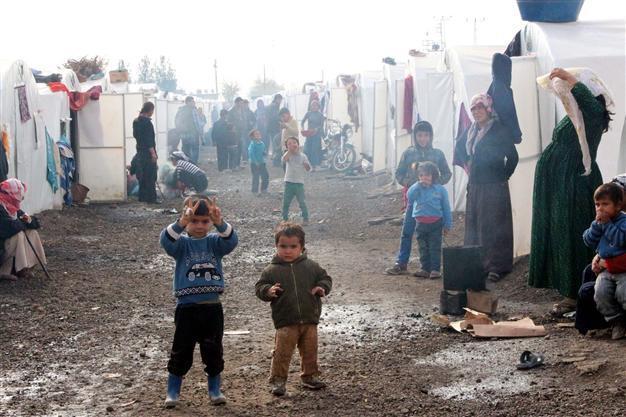Turkey should create immigration policy for Syrian refugees, report says
ISTANBUL

DHA Photo
Syrians will stay in Turkey for an extended period of time, with some potentially spending their entire life in Turkey, a new report titled “The Effects of the Syrian Refugees on Turkey” has stated, adding that the government should therefore formulate a comprehensive immigration policy for the future.“The initial presence of Syrian refugees on Turkish territory has now become a permanent one. It is crucial to create an immigration policy that includes the prevention of reactions from local communities," said the report prepared by the Center for Middle Eastern Strategic Studies (ORSAM) and the Turkish Economic and Social Studies Foundation (TESEV).
"There should be a holistic policy covering education, working conditions, accommodation, social services and improving the receptivity of the host community,” it added.
If the integration process works effectively, the Syrian refugee situation might contribute to the diversity and development of a multicultural structure in Turkey in the long run, the report also said, adding that the situation could strengthen the bonds between the neighboring countries in the future.
The report urged that the most serious security threat is a risk of a violent mass reaction prompted by provocations capitalizing on local anger toward Syrian refugees.
The biggest concern among people living close to Turkey's southern borders is their perceived vulnerability to terrorist attacks, the report added.
“According to official numbers, there were 1,645,000 Syrian refugees in Turkey as of November 2014. Unofficial numbers are estimated at around 2 million. Around 1.2 million people have been included in the 10 million already residing in cities near the Syrian border, and about 85 percent of the Syrians live outside of refugee camps,” the report stated.
With an Interior Ministry decision in October 2011, registered Syrian refugees were given “temporary protection status,” which covers indefinite residence, protection against returning under coercion and responding to emergency needs.
“Some 500,000 Syrian patients have been sent to hospitals from the camps. According to the Health Ministry’s data, 35,000 Syrians have given birth in Turkey, while the number of Syrians working in Turkey has reached 200,000 individuals,” said the report.
The report cited some of the key social effects of the presence of Syrian refugees as follows:
Polygamy among local communities is spreading as a result of an increase in divorce rates; child labor is spreading; ethnic and sectarian polarization could spike; and uncontrolled urban development is on the rise.
The inflow of the refugees has also had economic effects. “There has been an increase in rental prices and, as a result, it is often difficult to find affordable rental spaces. There has also been an increase in inflation in border cities, and hiring illegal workers is spreading, especially among small businesses,” the report said.
















